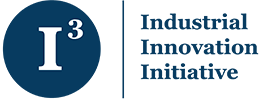Port of Corpus Christi Horizons Clean Hydrogen Hub and Trans Permian H2Hub merge to create integrated regional clean hydrogen hub proposal
The US Department of Energy (DOE) Office of Clean Energy Demonstration has encouraged both the Port of Corpus Christi Horizons Clean Hydrogen Hub (HCH2) and Trans Permian (Trans Permian) H2Hub to submit full applications through the DOE Regional Clean Hydrogen Hubs Program.
The Port of Corpus Christi and Trans Permian announced they are combining the two Hydrogen hubs into a single application, for which the Port of Corpus Christi will be the prime applicant.
The Port of Corpus Christi, as a landlord port authority and the steward of the most improved, most efficient ship channel on the U.S. Gulf Coast, is the prime applicant for the HCH2 and common denominator to each of the roughly two dozen discrete clean hydrogen production projects in the proposed Hub. The HCH2 Concept Paper, submitted to the DOE on November 7, names approximately 30 private sector team members as owners, developers and/or operators, offtakers, and end users of various hydrogen value chain projects and supporting infrastructure.
“This consolidation is a very natural and strategic step for the Port of Corpus Christi, the region and the nation,” said Jeff Pollack, Chief Strategy and Sustainability Officer for the Port of Corpus Christi. “West Texas has anchored domestic energy production for decades, with a physical and commercial connection to the Gulf Coast that is the backbone of the nation’s energy economy. Our integrated Hub concept creates the roadmap for diversifying and decarbonizing this historic corridor with the potential to deliver transformative benefits to communities in the Hub.”
The Trans Permian H2Hub geography includes the Texas Permian Basin cities of San Antonio, San Angelo, Big Spring, Midland, Odessa, El Paso, Fort Stockton, Alpine, Presidio and Del Rio. The planned projects within the Trans Permian H2Hub include production and hydrogen derivatives from diverse feedstocks as well as mobility projects, including hydrogen fuel cell bus manufacturing, hydrogen re-fueling stations, municipal transit projects and freight mobility projects.
Merging the two hub concepts creates a unified framework that leverages existing infrastructure and commercial connections between West Texas energy production and the nation’s premier energy gateway.
MMEX Resources CEO Jack Hanks, the prime sponsor of Trans Permian, echoed these sentiments. “Our fully integrated Hub represents two-thirds of the state of Texas and every link in the clean hydrogen value chain, from production to community end use. Our capacity to advance federal decarbonization objective and Justice40 Initiative objectives is profound.”

